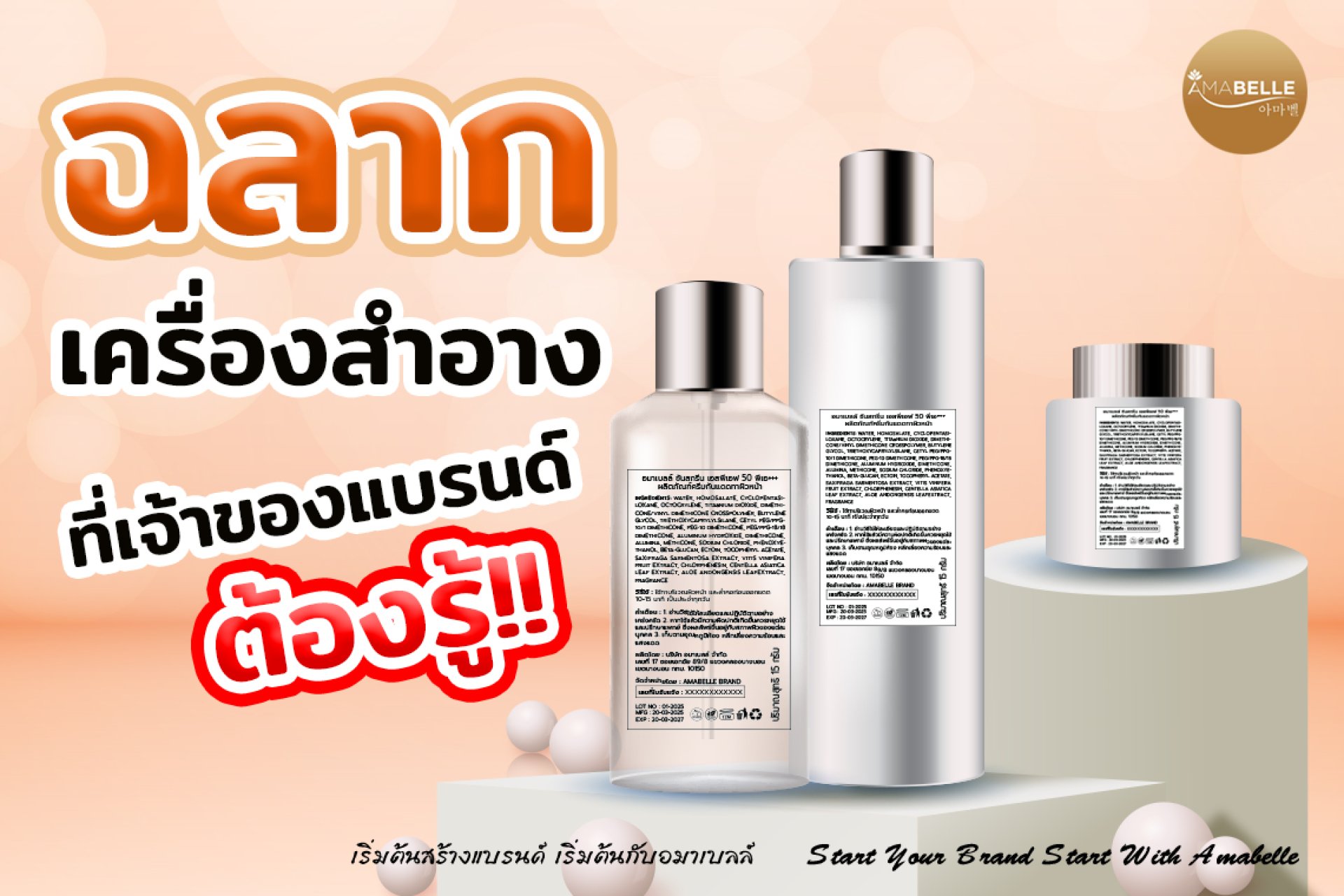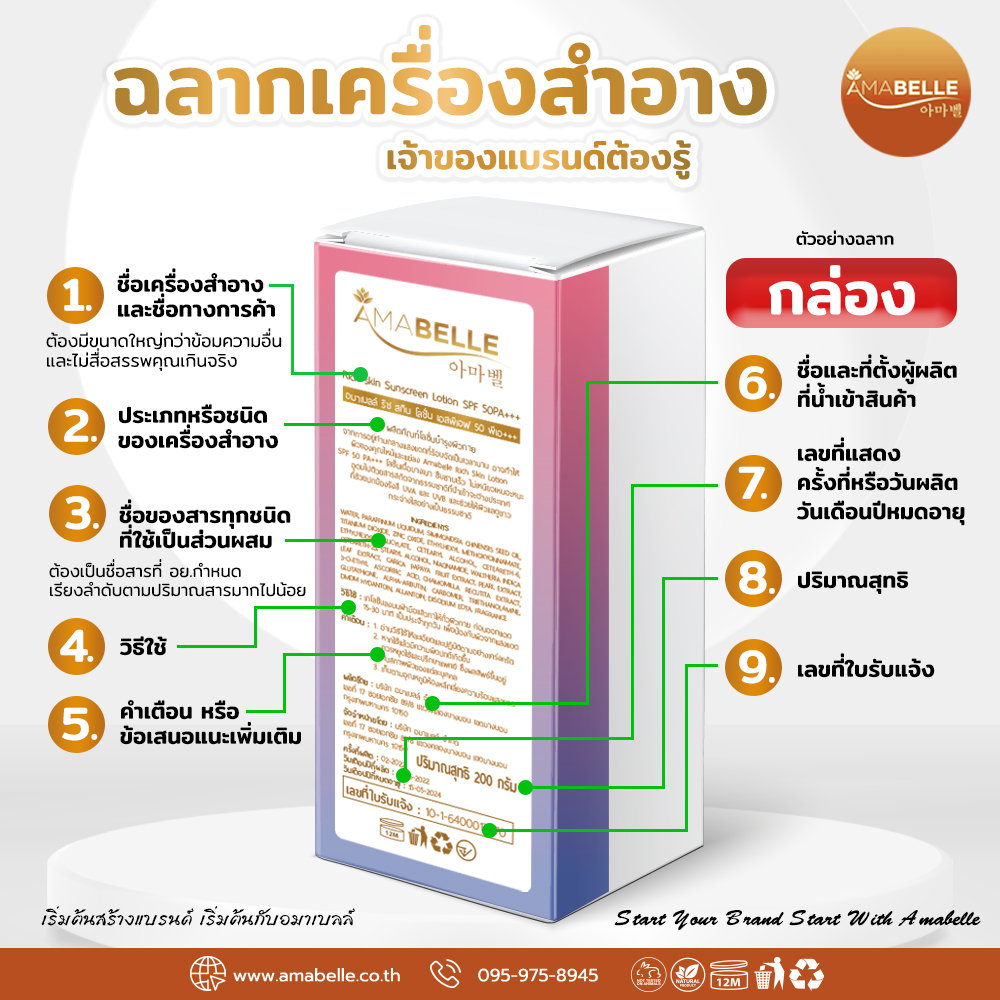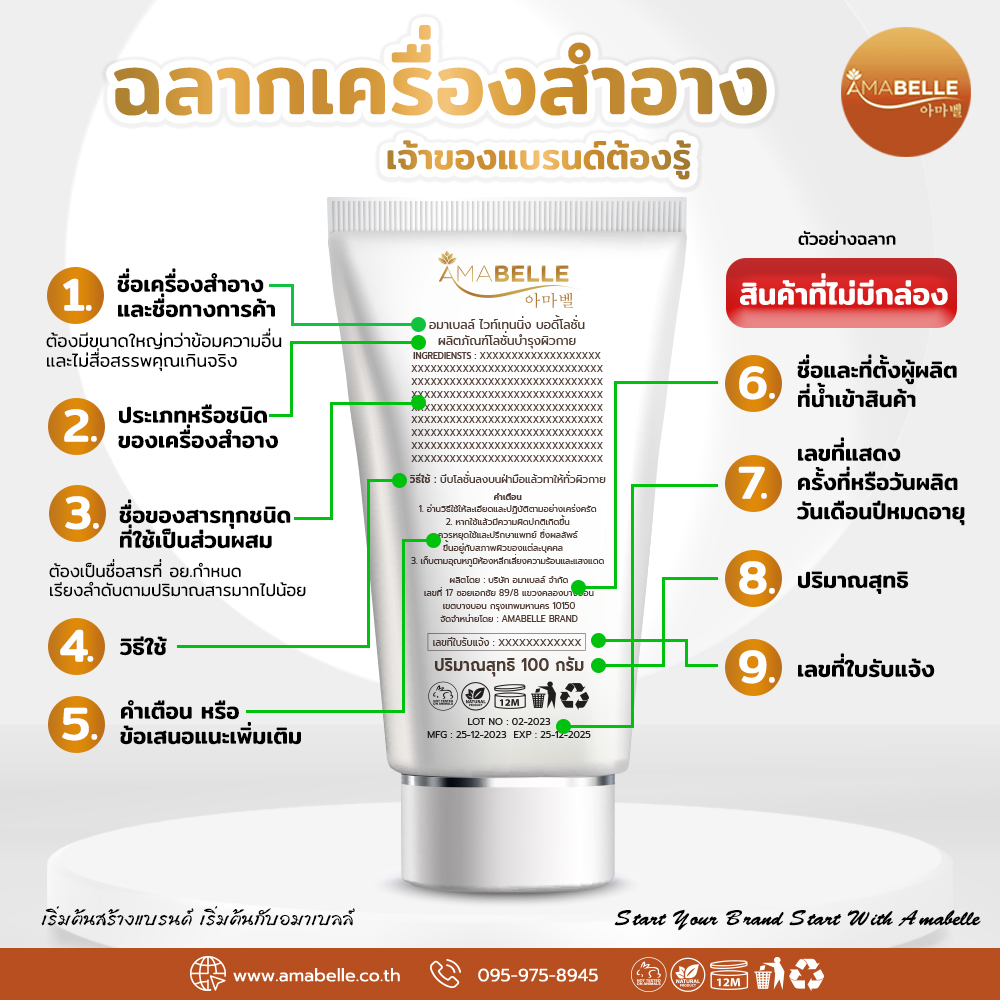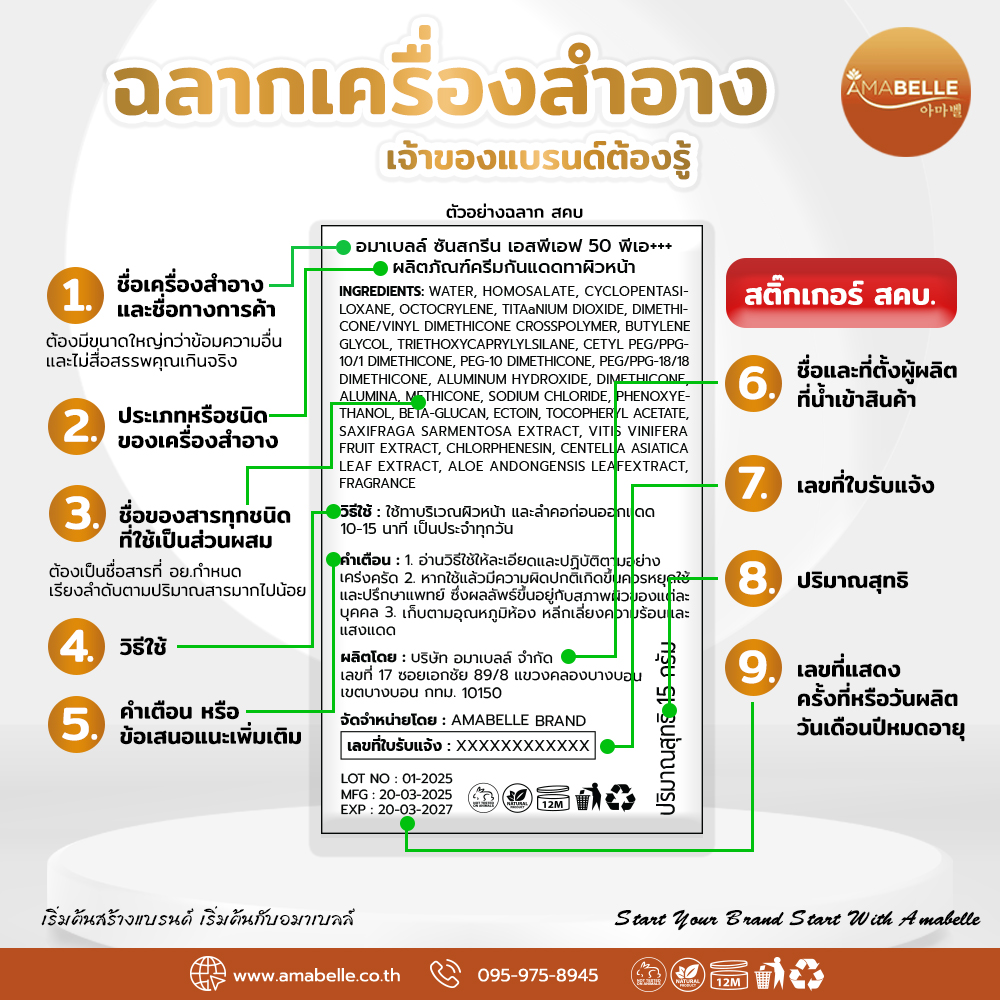Cosmetic Labeling: What Brand Owners Need to Know!!
Last updated: 27 Mar 2025
42 Views

Creating a successful cosmetic brand is not only about product quality but also about complying with the relevant laws, especially when it comes to cosmetic labeling. It must adhere to the regulations set by the Food and Drug Administration (FDA) in Thailand. If you're a cosmetic brand owner, understanding these requirements is essential to avoid legal issues and build consumer trust by ensuring your products are safe and up to standard. In this article, we'll guide you through the proper types of cosmetic labels that comply with the FDA's legal regulations, so you can confidently design labels that are both compliant and correct.
Heres the translation for the required information on cosmetic labels:
1. Product Name and Trade Name: Must be in a larger font than other text and should not exaggerate the products claims. This ensures your cosmetic brand stands out and is easily visible.
2. Type or Category of Cosmetic: For example, cosmetics for the face, skin, lips, hair, or nails.
3. List of Ingredients: All ingredients must be listed according to the names defined by the Food and Drug Administration (FDA). The ingredients should be listed in descending order of quantity.
4. Directions for Use: Provide information on how to use the cosmetic. For example, for sunscreen, it should specify the application area, the amount to be used, and the recommended time of use.
5. Warnings/Additional Recommendations: Information regarding potential health risks (if any).
6. Manufacturer's Name and Address: If the product is made domestically, include the manufacturers name and address. If its an imported product, provide the name of the importer, the manufacturers name, and the country of origin.
7. Batch Number, Production Date, Expiration Date: Indicates the production batch, the production date, and the expiration date of the product. This helps consumers track the product's shelf life. For products with a shelf life of less than 30 months, such as soaps (1-2 years), lotions (1 year), etc.
8. Net Quantity: States the amount of the product. Cosmetics typically use measurements such as grams (e.g., lotion 250g, serum 15ml).
9. Notification Number: Indicates that the product has been registered with the FDA for manufacturing or importing for sale.
10. Other Necessary Information: If the packaging is less than 20 square centimeters, at least the product name, trade name, batch number, production month and year, and the notification number must be included. Other details can be included in an insert.



Understanding and adhering to cosmetic labeling requirements not only helps prevent legal issues but also builds credibility for your brand. If you are looking for a reliable service provider to produce skincare and cosmetics that meet industry standards, along with assistance in applying for the FDA registration number correctly and legally, we are ready to guide you through every step. This way, you can confidently and safely focus on developing your brand. Contact us today to start the success of your brand!
Heres the translation for the required information on cosmetic labels:
1. Product Name and Trade Name: Must be in a larger font than other text and should not exaggerate the products claims. This ensures your cosmetic brand stands out and is easily visible.
2. Type or Category of Cosmetic: For example, cosmetics for the face, skin, lips, hair, or nails.
3. List of Ingredients: All ingredients must be listed according to the names defined by the Food and Drug Administration (FDA). The ingredients should be listed in descending order of quantity.
4. Directions for Use: Provide information on how to use the cosmetic. For example, for sunscreen, it should specify the application area, the amount to be used, and the recommended time of use.
5. Warnings/Additional Recommendations: Information regarding potential health risks (if any).
6. Manufacturer's Name and Address: If the product is made domestically, include the manufacturers name and address. If its an imported product, provide the name of the importer, the manufacturers name, and the country of origin.
7. Batch Number, Production Date, Expiration Date: Indicates the production batch, the production date, and the expiration date of the product. This helps consumers track the product's shelf life. For products with a shelf life of less than 30 months, such as soaps (1-2 years), lotions (1 year), etc.
8. Net Quantity: States the amount of the product. Cosmetics typically use measurements such as grams (e.g., lotion 250g, serum 15ml).
9. Notification Number: Indicates that the product has been registered with the FDA for manufacturing or importing for sale.
10. Other Necessary Information: If the packaging is less than 20 square centimeters, at least the product name, trade name, batch number, production month and year, and the notification number must be included. Other details can be included in an insert.



Understanding and adhering to cosmetic labeling requirements not only helps prevent legal issues but also builds credibility for your brand. If you are looking for a reliable service provider to produce skincare and cosmetics that meet industry standards, along with assistance in applying for the FDA registration number correctly and legally, we are ready to guide you through every step. This way, you can confidently and safely focus on developing your brand. Contact us today to start the success of your brand!
♥ Start Your Brand Start With Amabelle ~
Line Official : @amabelle
Tiktok Official : @amb_amabelle
Facebook : Amabelle รับผลิตเครื่องสำอาง รับสร้างแบรนด์ครบวงจร
Related Content
Creating a skincare and cosmetics brand is another interesting investment opportunity. For anyone who is thinking about starting their own cosmetics or skincare brand, let’s take a look at some tips from us.
Do you want to know why the GHPs & HACCP standards are important for food and cosmetics production? Let’s get to know the standards from GHPs & HACCP!
Moisturizer is an essential skincare product that everyone should have, but have you ever wondered which type of moisturizer is best suited for your skin?


